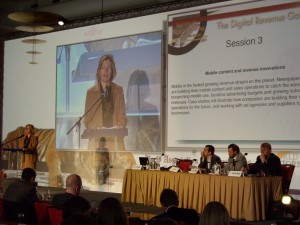 On Monday, Iceland’s coalition government collapsed under the strain of an escalating economic crisis.
On Monday, Iceland’s coalition government collapsed under the strain of an escalating economic crisis.
However, because of widespread cross-ownership, Icelandic media is not only feeling the impact of the crisis on its advertisement revenues; it’s in the eye of the storm, and angry Icelanders have turned to turn to the web to inform each other, organise anti-government rallies and vent their frustrations.
“It’s a grassroots revolution,” said Andri Sigurðsson, a blogger and web developer.
He explained that Iceland had seen a surge in political blogs in the wake of the financial turmoil, and that people had turned to using web tools such as Facebook and Twitter to organise demonstrations and protests.
With so many people losing their jobs, this year the island is facing the highest unemployment in decades. Some have turned to blogging full time – the blogger behind Newsfrettir, for example, has started translating Icelandic news to English after being made redundant in October.
Since the country’s biggest newspaper, Fréttablaðið, along with a large portion of the rest of Icelandic media, is controlled by Baugur (the ailing investment company that also owns a large stake in Iceland’s and the UK’s retail industry); and the second biggest newspaper, Morgunblaðið, has been controlled by Björgólfur Guðmundsson (owner and chairman of West Ham FC and chairman of Landsbanki, the bank embroiled in the Icesave scandal)… the whole situation gets rather complicated.
 “We’re trying to cut all our connections to Baugur. You know, the sugar daddy behind DV and Fréttablaðið was Baugur, but the sugar daddy behind Morgunbladid was Björgólfur Guðmundsson? Every media here has its problem. We had Baugur’s Jon Asgeir Jóhannesson, they have Björgólfur,” said Reynir Traustasson, editor-in-chief of Icelandic tabloid DV, pictured right.
“We’re trying to cut all our connections to Baugur. You know, the sugar daddy behind DV and Fréttablaðið was Baugur, but the sugar daddy behind Morgunbladid was Björgólfur Guðmundsson? Every media here has its problem. We had Baugur’s Jon Asgeir Jóhannesson, they have Björgólfur,” said Reynir Traustasson, editor-in-chief of Icelandic tabloid DV, pictured right.
It is against this backdrop that political blogs such as the conservative AMX.is and the socialist-green Smugan.is have grown in popularity. However, Fréttablaðið’s editor-in-chief Jón Kaldal, does not see the surge in independent sites for news and opinion as a threat to mainstream media.
“None of these are doing investigative reporting; they are just repeating what has been written elsewhere. It is an outlet for gossip and rumours. But certain internet sites have worked well to get information out of the government. When gossip breaks out on these sites, the government is forced to come out of hiding,” he said.
Yet Kaldal was not optimistic about the times ahead:
“The whole society of Iceland is in a very strange place at the moment. It’s like we’re engulfed in a thick fog, and we don’t know quite how the world will look like when it lifts. Always in a recession or downturn there is a stronger demand for effect in advertisement. The strong grow stronger during a recession. But the situation here on Iceland is so critical that I don’t know if that’s enough.”
Read more about online journalism and the media in Scandinavia at this link.
Images in this post used with the author’s permission. For more of Kristine’s Iceland images visit Flickr.


